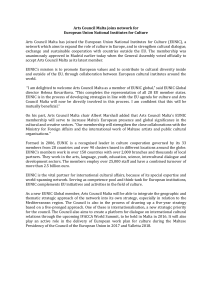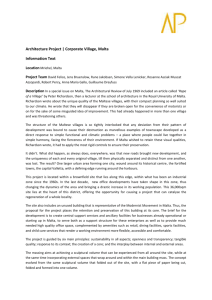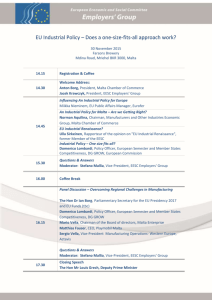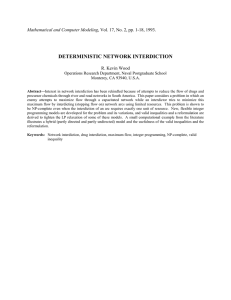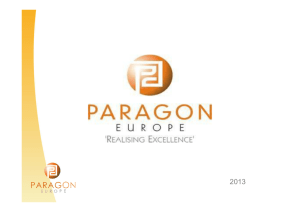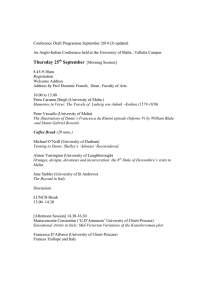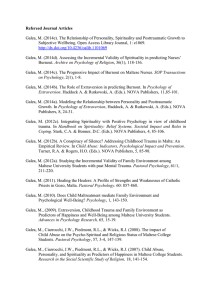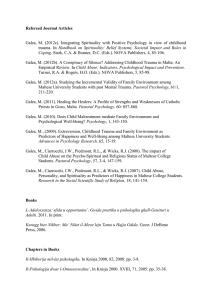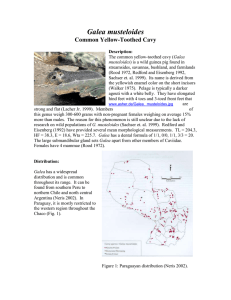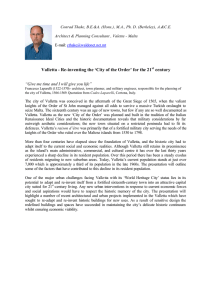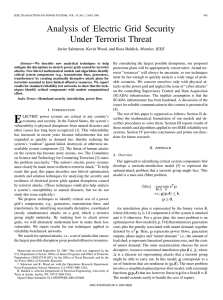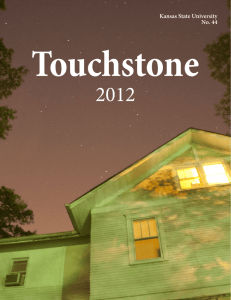Slide 1 - Richmond Foundation
advertisement
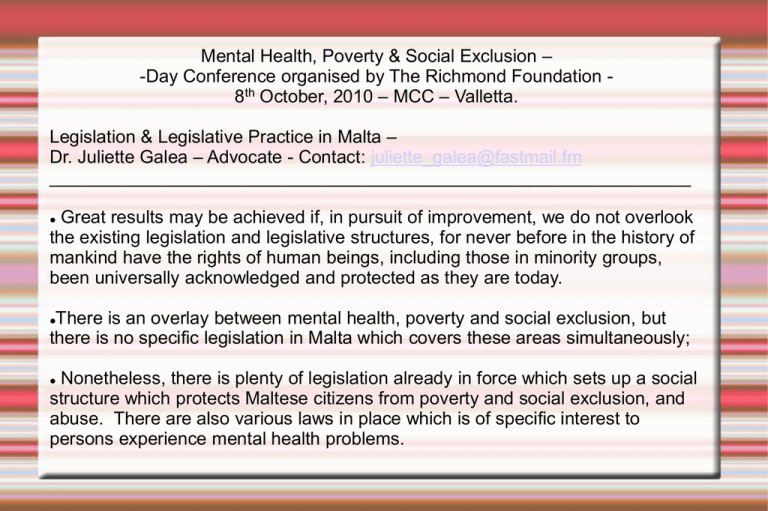
Mental Health, Poverty & Social Exclusion – -Day Conference organised by The Richmond Foundation 8th October, 2010 – MCC – Valletta. Legislation & Legislative Practice in Malta – Dr. Juliette Galea – Advocate - Contact: juliette_galea@fastmail.fm ________________________________________________________________ Great results may be achieved if, in pursuit of improvement, we do not overlook the existing legislation and legislative structures, for never before in the history of mankind have the rights of human beings, including those in minority groups, been universally acknowledged and protected as they are today. There is an overlay between mental health, poverty and social exclusion, but there is no specific legislation in Malta which covers these areas simultaneously; Nonetheless, there is plenty of legislation already in force which sets up a social structure which protects Maltese citizens from poverty and social exclusion, and abuse. There are also various laws in place which is of specific interest to persons experience mental health problems. LEGISLATION: THE EUROPEAN CONVENTION ON HUMAN RIGHTS THE CIVIL CODE & THE CODE OF ORGANISATION & CIVIL THE MENTAL HEALTH ACT PENAL LAW PROCEDURE SUBJECTS OF LAW & THE EUROPEAN CONVENTION ON HUMAN RIGHTS Under the Legal system of Malta, which Civil Law system, every person is a subject of law. This means that we are all entitled to enjoy rights and bound by duties. Certain rights are so intrinsic to being human, that no matter what, once a person is born, he or she, is entitled to enjoy them. These rights form a council of Europe document known as the European Convention on Human Rights and many and they are so important that they form part of our Constitution. These rights include: The Right to Life; Freedom from Torture, Inhuman or Degrading Treatment or Punishment; Freedom from Slavery, Servitude, or Forced or Compulsory Labour; The Right to Liberty & Security of the Person; The Right to a Fair Trial; Freedom from Retroactive Criminal Offences & Punishment; The Right to Respect fro Private & Family Life, Home and Correspondence; Freedom of Religion; Freedom of Expression; Freedom of Assembly and Association; The Right to Marry and Found a Family; The Right to an effective National Remedy How does a person attain the protection of these Fundamental Rights? (a step-by-step guide) 1. Identify whether facts – be they of a statutory or practical nature – breach Your rights; 2. Confirm that there are no other legal steps you can take in order to effectively protect your rights through 'ordinary' procedures; 3. File an application before the Civil Courts in their Constitutional Jurisdiction, asking that your rights be declared infringed, and asking for a remedy; 4. If you are unsatisfied with the judgement, file an appeal, within 20 running days, before the Constitutional Court; 5. If unsatisfied with the outcome, within 6 months, file an application before the European Court of Human Rights based in Strasbourg. N.B. These procedures are both fast-paced, and inexpensive. The Civil Code & The Code of Organisation and Civil Procedure The concept of the Legal Capacity to Act → Will (volition) & Knowledge → Tied to specific legal acts Presumption of Legal Capacity Partial Curtailment of Legal Capacity = Legal incapacitation Full Curtailment of Legal Capactity = Legal interdiction Mental illness does not necessarily mean legal incapacitation and legal interdiction The Court of Voluntary Jurisdiction → Interdiction & Incapacition Proceedings PENAL LAW: Comprises all law which if broken may result in a prison sentence; Mental illness which brings about the commission of a crime can be used as a defence line in criminal proceedings; Important to know that criminal and civil action are independent from one another and have different standards when it comes to the capacity to act. Ex: you may find a person not guilty for committing a crime, but still responsible for the damages he or she commits as a result of insanity; There are several instances where the penal law punishes those who abuse a person who has mental health difficulties more severely than in cases where two mentally fit persons are involved. The Mental Health Act – 1976 The main legislation dealing with mental health patients in Malta is the Mental Health Act of 1976 (MHA); Its focus is the administrative regulation of mental hospitals and mental nursing homes and, in particular, the basis on which patients are detained and given treatment; This Act does not involve itself with the provision of mental health services but with the confinement of patients; The Act does not provide for community based mental health services; It fails to regulate the kind of treatment and manner in which treatment is given. It fails to co-ordinate the various mental health professionals working within mental hospitals or ancillary institutions. The Act neglects the fact that mental health patients are not necessarily found within mental hospitals but also within the community as well as other institutions such as old peoples' homes. It is an Act which is mostly condemnable not on the grounds of content, but on the omission thereof and for this reason may give rise to breaches of the European Convention on Human Rights. Mental Health, Poverty & Social Exclusion – -Day Conference organised by The Richmond Foundation 8th October, 2010 – MCC – Valletta. Legislation & Legislative Practice in Malta – Dr. Juliette Galea – Advocate - Contact: juliette_galea@fastmail.fm Conclusion __________________ Question Time
